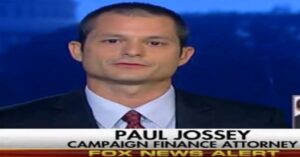States should not lead on crypto
Everyone except Securities and Exchange Commission (SEC) chair Gary Gensler sees the federal government’s approach to crypto is a mess. Various cohorts, including academics, SEC Commissioners, and lawmakers, have offered alternatives to Mr. Gensler’s “Enforcement Only” approach. Unfortunately, some proffered solutions would worsen the problem.
Paul Watkins and Danielle DuBose recently published an academic article suggesting the states should lead the crypto regulatory charge amid federal intransigence. This approach would fail for several reasons including the lack of motivation for states to cooperate and the hardships it would produce even if they did cooperate. A better solution would be to remove digital assets from the purview of investment-contract analysis and allow private ordering as the most successful security exemption already does.
Watkins and DuBose propose a two-part state-led solution. First, states should exercise their anti-fraud powers to pursue bad crypto actors. Second, they should provide a two-part safe harbor from state-level securities law and reciprocity between cooperating states. But the states are unlikely to agree to this venture. Some like New York have burdensome and onerous crypto regimes, others seeking crypto investment like Wyoming provide issuer-friendly rules. States with vastly different approaches likely won’t cooperate on standardization. Watkins and DuBose point to state adoption of the Uniform Securities Act while noting Arizona, California, Florida, Illinois, New York, North Dakota, Ohio, Tennessee, and Texas have refused adoption. Some important states are on that list.
States cannot agree on anything
It is even worse for money transmission laws. Peter Van Valkenburgh, Research Director at Coin Center notes only 12 states have adopted the model money transmission law developed almost two decades ago. There would likely be similar reluctance for a crypto safe harbor given the divergent regimes already in existence, the natural competition between states, and the fact many struggle to define crypto’s basic concepts. Issuers would have to comply with each state that declined the safe harbor by either registering with that state or observing its particular exemption—a legal nightmare.
Yet, even in the unlikely scenario all or almost all the states agreed to the proposed framework it would still be unfeasible. The paper proposes two ways crypto issuers could attain the safe harbor. First they could qualify through one of six statutory qualifications. Second issuers could seek an exemption via a government official which through reciprocity other states would accept.
State crypto lead would not preclude federal involvement
The authors specifically designed the safe harbor to survive a federal court challenge rooted in the Howey test and other cases that determine whether a particular instrument is an “investment contract” and thus a security under federal law. “The statutory qualifications and factors for the state official to consider are designed to exempt tokens that do not meet the definition of security under federal law as interpreted by Supreme Court precedent.” Thus, the framework is a federal analysis that doesn’t include or bind federal regulators.
The folly of this approach is shown by the arduous analysis issuers must traverse to qualify for the safe harbor. This is particularly under state-bureaucrat exemption. A nightmare of factors stacked like cordwood each making the existence of a federal security “more likely” or “less likely.”
Particularly bemusing is the strict admonishment against profit, or potential profit seeking and instead the focus on consumption. The authors may rejoin their multifactor analysis is what federal precedent requires. And they are tailoring disclosures to be more germane to crypto issuers than those required under the 1933 Act.
This may be true, but it shows why regulators need new thinking. It is likely. as the authors suggest, their disclosure regime focusing on the token itself, source code, transaction history and other factors better protect investors than disclosures required by traditional registration. But that hardly moves the ball forward.
Private ordering works, not state crypto rules
If their suggested disclosures are important, investors would demand them without the expense and ambiguity of wading through endless factors. This is how Regulation D 506(b) works. The government mandates no disclosures, but Private Placement Memorandums provide what investors consider most important. The success of this exemption—limited essentially to accredited investors—is undeniable. It outpaced the entire public market by itself in 2019.
Congress should remove “investment contract” analysis from the definition of security for digital assets. The Howey test and its progeny have no place in determining assets unfathomable when W.J. Howey, an enterprising salesman, offered orange grove plots to Florida tourists decades ago. The market will demand the information necessary. Some issuers will lie, some offers will be fraudulent. But decades of mandated disclosures have done little to deter scammers as scholars Stuart Cohn and Gregory Yadley lamented in 2007, “[Ex]amination of the securities violations . . . reveals that no amount of technical exemption requirements will hinder the fraud artists from their endeavors. . . . Fraudulent and deceptive schemes have unfortunately continued unabated and independent of formal registration or exemption requirements.” Those still unconvinced can visit the SEC’s website on any given day and view the commission’s ten most recent press releases.
States should lead on fraud prosecutions
States do have a role to play in crypto. It is prosecuting fraudsters. Stiff penalties and jail time are the best deterrent not incompressible new multifactor analyses.
By Jossey PLLC








